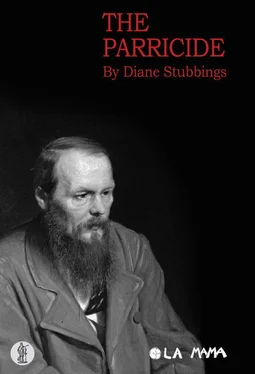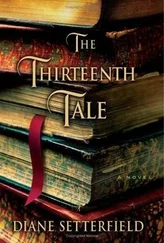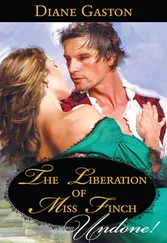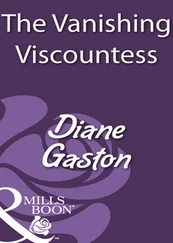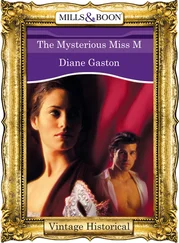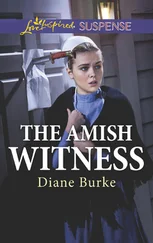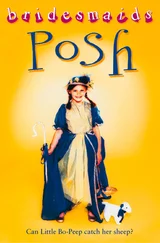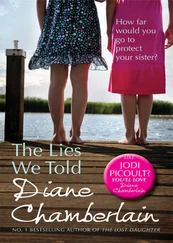Diane Stubbings
THE PARRICIDE
DIANE STUBBINGS’ plays include: The Possibility of Zero (shortlisted, Queensland Premier’s Drama Award, 2014), Entangled , The Local Void (shortlisted/semi-finalist, Internationalists’ Global Playwriting Competition, 2012), These are the things… (shortlisted, Rodney Seaborn Playwrights’ Award, 2011), and Prayer . Her book reviews have appeared in The Canberra Times and The Australian , and her study of Anglo-Irish Modernism was published by Macmillan/Palgrave in 2000. The Parricide is the first of her plays to have been produced.
The Parricide was first produced at La Mama Theatre, Melbourne, on 7 May 2014 with the following cast:
FEDYA — Lyall Brooks
ANNA/KATYA — Anneli Bjorasen
KOLYA/MITYA — Nick Simpson-Deeks
ELENA/GRUSHENKA — Odette Joannidis
KARAKOZOV/ALYOSHA — Gabriel Partington
Writer, Diane Stubbings
Director, Karen Berger
Dramaturg, Dave Letch
The Parricide had its first reading at Parnassus’ Den (Sydney, May 2009) with the following cast and creatives:
FEDYA — Tony Sloman
ANNA — Sally Cahill
KOLYA — Anthony Phelan
ELENA — Linden Wilkinson
KARAKOZOV — Matt Minto
DIRECTOR — Dave Letch
The play had a second reading at Parnassus’ Den (October 2010) with the following cast changes:
ANNA — Kate Worsley
KOLYA — Jonathan Hardy
KARAKOZOV — Gus Murray
As a result of funding provided by the R.E. Ross Trust, The Parricide was workshopped in October 2011, with a subsequent reading at fortyfivedownstairs (Melbourne, November 2013) involving the following cast and creatives:
FEDYA — David Pidd
ANNA/KATYA — Isabella Dunwill
KOLYA/MITYA — Nick Simpson-Deeks
ELENA/GRUSHENKA — Odette Joannidis
KARAKOZOV/ALYOSHA — Gabriel Partington
DIRECTOR — Karen Berger
DRAMATURG — Dave Letch
SOUND — David Joseph
LIGHTING — Andy Turner
The Parricide is a work of fiction. Based on the life of one of the world’s greatest novelists, it draws out from that life ideas about passion, fear and the creative instinct.
The writing of The Parricide began with Fyodor Dostoyevsky’s formidable novel The Brothers Karamazov . Reading this story of three brothers whose father is murdered, I was captured both by the intricate dynamics of the Karamazov family and the intense courtroom drama that plays out in the novel’s second half. But what most fascinated me—and what lingered long after I’d finished reading the novel—was the character of Ivan, the second of the Karamazov brothers.
While Dostoyevsky explicitly proffers Alexei, the youngest brother, as the hero of his novel, it was, for me, Ivan who gave the novel its emotional core. In Ivan’s deep (yet unrequited) love for his brother’s fiancée, there is something reminiscent of the great romantic heroes. But, more than that, I’d argue that it’s Ivan’s journey from conviction to doubt—and the ferocity of his intellectual engagement—that marks him as the true hero of The Brothers Karamazov .
Thinking about my own response to Dostoyevsky’s novel, I began to wonder about the extent to which an author is really in control of their own work. Could it be that there are other forces that push the writing beyond the author’s conscious control? Dostoyevsky might have told himself he was writing a novel about a young man—Alexei Karamazov—who finds truth and light in the form of the Christian God (and who in a projected, but never written, second volume goes on to kill the Tsar), but was Dostoyevsky, in fact, writing about something else entirely? Was it actually Ivan Karamazov—whose nihilism pulses so forcefully through the novel—who more fully captured Dostoyevsky’s imagination? And was Dostoyevsky as wound up in this dangerous nihilism as Ivan himself was?
This is the ground out of which The Parricide grew; and, reading more about Dostoyevsky’s life, I stumbled across a note which suggested that Dostoyevsky may have begun a draft of The Brothers Karamazov long before the final version was published. No trace of this earlier draft has ever been found (perhaps it did exist, perhaps it didn’t), but the possibility that these ideas—about God, nihilism, jealousy, truth and faith—had been tumbling about in Dostoyevsky’s mind for a very long time opened up all sorts of possibilities for me as a writer.
Researching Dostoyevsky’s life further, I came across the charming story of how he met his second wife, Anna; and the sense of order and purpose she brought to his personal life offered a striking contrast to (what I saw as) the inherent disorder of Dostoyevsky’s writing life. Bringing Dostoyevsky’s wooing of Anna together with an early attempt to write The Brothers Karamazov seemed a promising way forward dramatically. But the play still wanted more.
I found what I needed in Dostoyevsky’s arrest for conspiracy. Still in his twenties, and having just begun to make his mark in Russian letters, Dostoyevsky’s subsequent imprisonment shaped both him and his writing more than anything else he’d experienced. What, I wondered, must it be like to emerge from ten years of virtual isolation in Siberia and have to re-establish your place in society; to re-assert yourself as a writer of note? And what happens to the revolutionary flame, the revolutionary spirit, after a man has been so long incarcerated in such extreme conditions? Is it doused completely, or is there a spark that persists? And, when political unrest again stalks the streets, is it a spark that, in a man like Dostoyevsky, is bound to be resurrected?
These are the questions which underpin The Parricide . In the writing of it—and over numerous drafts—I’ve moved a fair way from the known facts of Dostoyevsky’s life, and I’ve telescoped several decades of history into a matter of weeks. This presented its own challenges: How to dramatise so many years of Russian history—and such a vast array of real and imagined characters—using only five actors?
Sometimes what at first seems like an intractable problem introduces all sorts of interesting possibilities. Seminal historical moments—such as the burning of St Petersburg—could be generated using light and sound effects. The tension between history and fabrication could be underscored by eschewing realistic sets and costumes in favour of something that gave both a modern and a historical sense. And rather than trying to hide the doubling of cast members, the actors’ transitions from one character to another could be made explicit, the audience fully aware of the shifts in voice, gesture and costume, thereby magnifying the lines between the real and the imagined. Further, by having characters directly recounting to the audience their own versions of Dostoyevsky’s life, it was possible to emphasise that the play is meant to be understood as a fiction—yet another rendering of Dostoyevsky’s life story—rather than something historically factual.
Through all this, I’ve endeavoured to remain true to the spirit of the man and his writing, and if I’ve misjudged in any way, I take heart in the fact that Dostoyevsky’s work will endure a lot longer than my own. At the very least, I hope The Parricide will entice people who don’t know Dostoyevsky’s work to discover his writing for themselves. The rewards of doing so are well worth the effort.
Читать дальше
